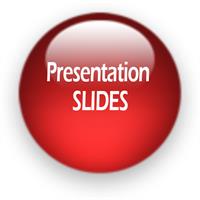
Report:
How to Build a Career in AI & Machine Learning
The workshop was organized successfully by ParsA Foundation and collaboration with YES Montreal.
Dr. Vahid Partovi Nia summarized the field of artificial intelligence as the umbrella term and its variants, machine learning, deep learning, and data science. He went through the type of jobs and different education level or otherwise skills applicants need to acquire before be able to enter the market.

Dr. Kash Khorasani's talk focused on the use of AI on aerospace and fields mainly outside of software companies, as well as the safety needed to be prioritized when expanding AI techniques in such fields. Dr Khorasani went through application of AI on autonomous cars and how easily, through sending noise to communication channels, a neural net algorithm can misclassify a STOP sign as a SPEED LIMIT 60. Dr. Khorasani emphasized on public awareness about use of AI, its safety, and ethics, as well as individual responsibilities to aware each other, the public, and the government on AI ethics and safety issues.

The panel started by questions around entering the AI careers from industrial science or other non-Computer Science domains. Then, there were more questions regarding use of AI within healthcare domains, followed by more technical questions from some AI employees around the topics of how making AI work, i.e. why their AI approaches do not come up with solutions within their tasks.
Dr. Hamidreza Chinaei started by categorizing AI jobs to three categories of data analysis (analyzing and visualizing data), data science (running algorithms on data), and research engineering (productizing AI algorithms). To be able to get AI jobs, applicants need to have a horizontal knowledge of general AI topics in statistics and probability, data analysis and visualization, programming, etc., and a vertical knowledge that can be acquired by deeply pursuing your strength in one of the domains. While the horizontal knowledge can be acquired by researching and/or taking online courses or participating in university certificate programs, the vertical knowledge can be built through programming projects and getting insights/advising from mentors of the field.
During the panel, Dr. Alireza Akbarzadeh discussed about the use of AI in healthcare domain, and in particular how healthcare personnel and AI experts would be able to work together since each of these fields has separate vast knowledge, skills, and jargons. The discussion revolved around the idea that each party need to educate themselves about the jargons and a basic understanding of the other field. Further, it is crucial for healthcare personnel to outreach academia or other AI consultants for brainstorming of AI solutions for healthcare topics. Finally, the multi-disciplinary domain of AI application for healthcare needs regular/structured meeting sessions to educate each other, brainstorm, and come up with solutions.
Further, for making AI work in practice, the panellists suggested more systematic way of approaching the problem. Solving a task using AI demands an iterative process which often includes the following high level steps: i) Defining the problem crisply, ii) enumerating possible approaches, iii) understanding the data, iv) cleaning the data, v) extracting the features, vi) running an approach, and vii) calculating the performance. And, iterating through these seven steps until a sensible solution is achieved.
The workshop had two rounds of networking; in the break and after closing the panel where participants got the chance to connect to each other and speakers to share their concerns, questions, and feedback.


How to Build a Career in Artificial Intelligence and Machine Learning in Quebec
Speaker:
Vahid PARTOVI NIA, PhD
Principal Machine Learning Scientist
Huawei Technologies
Adjunct Professor
École Polytechnique de Montréal
Panelists:
- Alireza AKBARZADEH, PhD
Research Associate
Biomedical optics and imaging. Machine learning
Institut TransMedTech de Montréal
École Polytechnique de Montréal
- Hamidreza CHINAEI, PhD
Senior Research Scientist
R&D - QuickNLU and Dialogue Technology Group
Nuance Communications
Kash Khorasani, PhD
Professor and Tier I Concordia Research Chair, Electrical and Computer Engineering
Concordia Institute of Aerospace Design & Innovation
Organized by the ParsA Foundation, in collaboration with YES Montreal.
Thursday, September 19th, 2019.
6 PM to 8 PM. YES Montreal, 666 Sherbrooke W., # 700, Montreal, QC, H3A1E7.